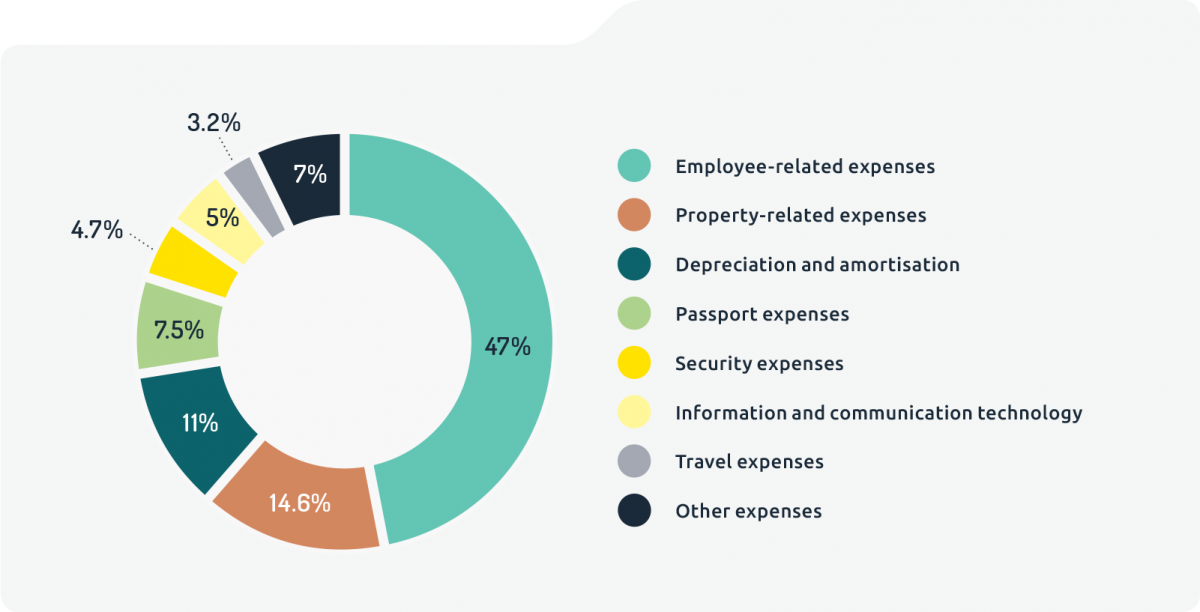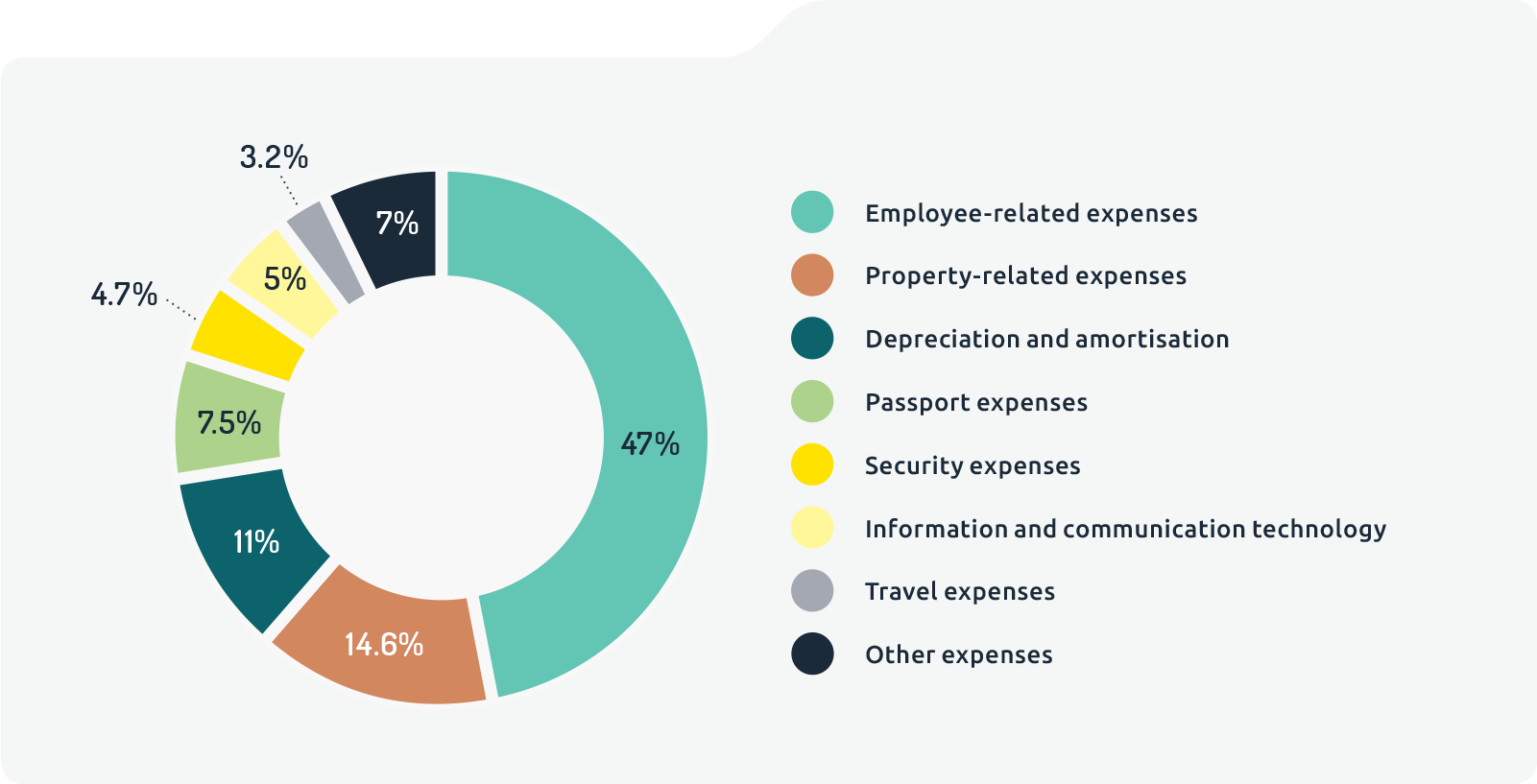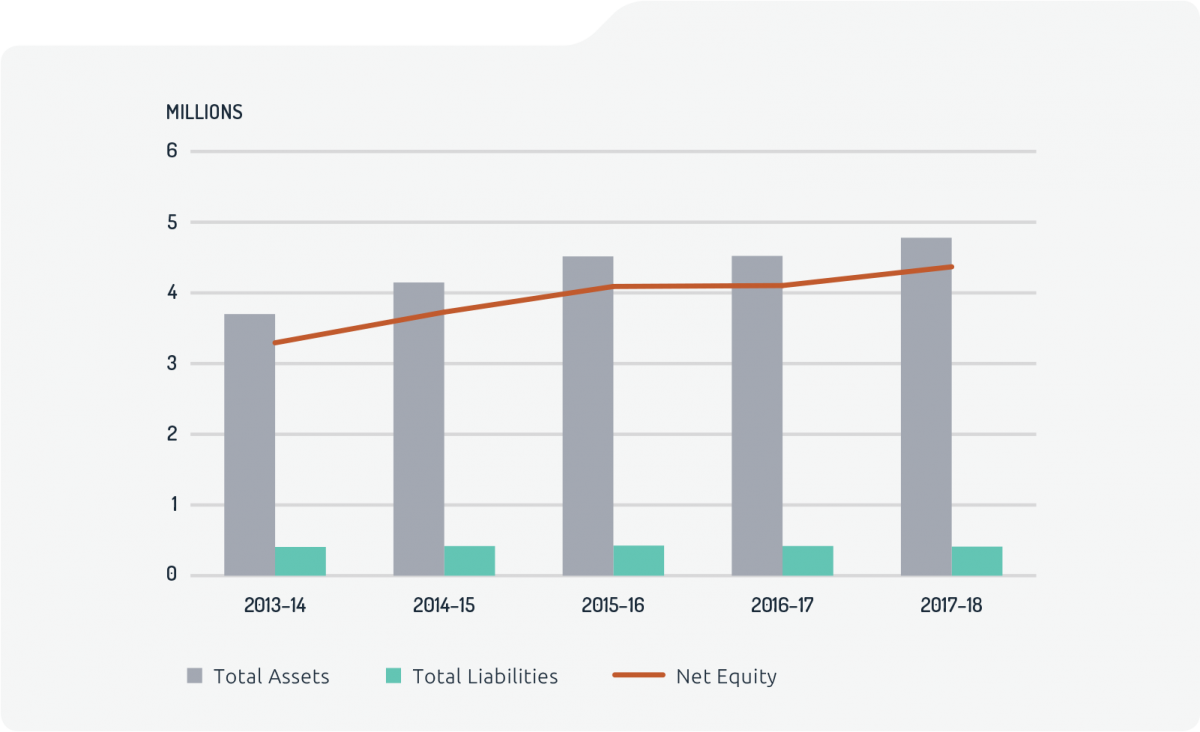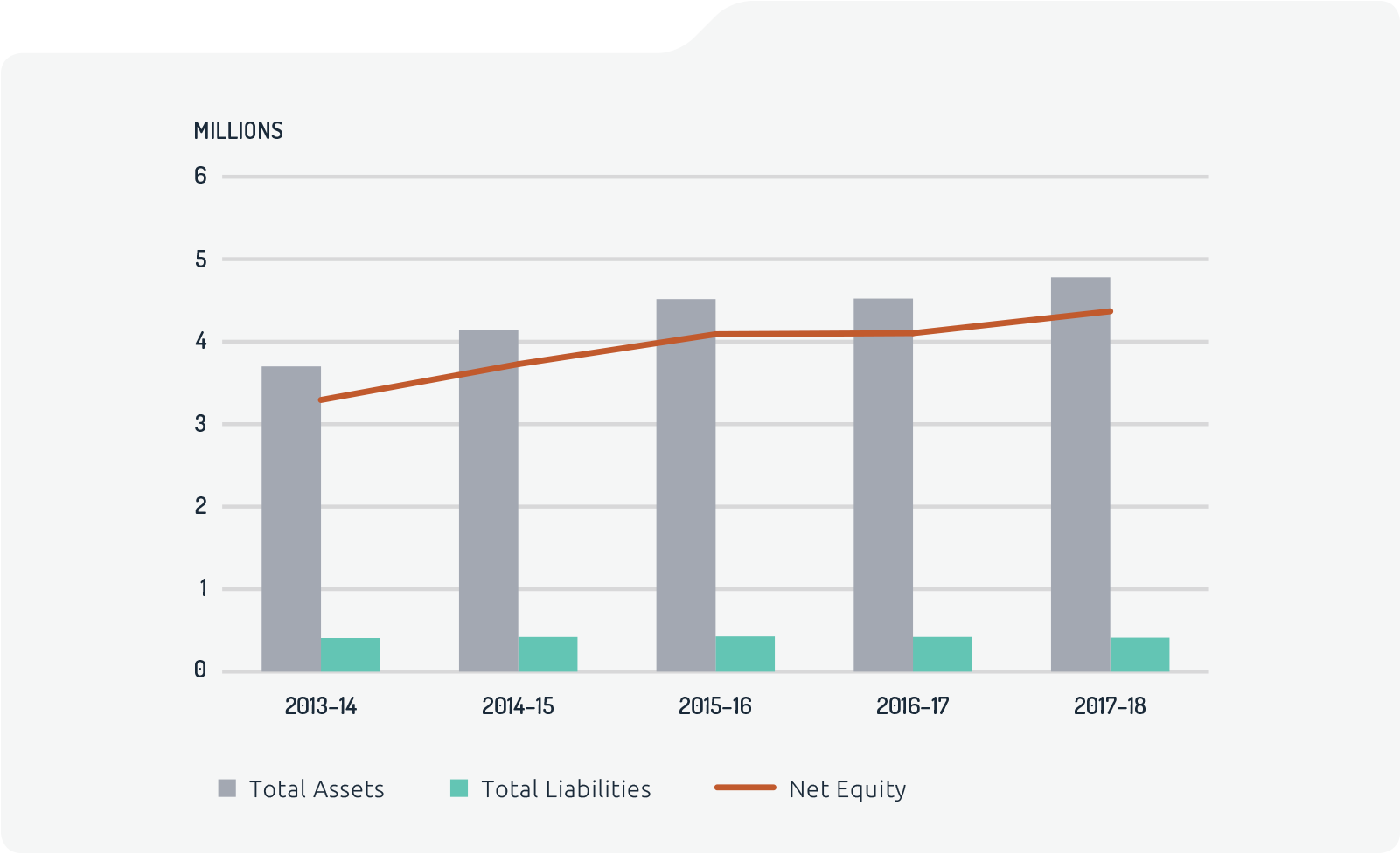Report on financial performance
Departmental operating result
As reported in the financial statements at Section 04, the department recorded an operating deficit of $53.9 million. After adjusting for depreciation and amortisation expenses, the department’s year end result is a surplus of $133.3 million, due to the gain from sale of the chanceries in Bangkok and Jakarta.
The department’s 2017–18 operating budget was supplemented to continue Australia’s diplomatic engagement and security arrangements in Afghanistan and Iraq. In addition to maintaining our diplomatic presence, this funding also supported Australia’s efforts to combat ISIL in Iraq and Syria. The department was approved to centralise management of non-departmental property overseas to capture economies of scale in service provision, the costs of which were met within the existing resourcing of the Foreign Affairs and Trade portfolio.
See also Management of Financial Resources, p. 144, and the financial statements, p. 155.
Revenue
The department reported $1,642.7 million of revenue in the Statement of Comprehensive Income, comprised of:
- $1,355.2 million of appropriation revenue from government
- $ 145.5 million of own source income
- $ 142.0 million in gains including sale of assets.
This represents an increase of $107.8 million over 2016–17, mainly due to the gain from sale of the chanceries in Bangkok and Jakarta.
The department also reported $220.4 million of other comprehensive income arising from asset revaluation movements in the Statement of Financial Position. This is recorded directly as equity on the Statement of Financial Position and is not incorporated into the departmental operating result.
Expenses
The department reported $1,696.5 million of expenses in the Statement of Comprehensive Income. This represents an increase of $24.9 million over 2016–17, mainly due to the following factors:
- increased depreciation and amortisation expenses of $15.9 million due to the increased value of the department’s asset holdings, offset slightly by a $4.3 million decrease in write-down and impairment costs from the detailed review of assets and assets under construction
- increased employee expenses of $19.0 million due to delays in reducing staff numbers and the increase in value of leave based on movements in the bond rate, offset by
- a reduction in overall supplier expenses of $4.0 million due to cost savings on specific suppliers.
Assets and Liabilities
The department reported a net asset position of $4,368.6 million in the Statement of Financial Position, with liabilities equating to less than 10 per cent of the total asset base.
Net assets are $264.8 million higher over 2016–17. The main factors contributing to the movement in 2017–18 were the increase in the value of tangible non-financial assets due to new purchases and developments, and revaluation movements.
1. This figure excludes cash payments to multilateral organisations and departmental expenditure.
Administered program Performance
The administered program comprises activities undertaken by the department on behalf of the government. Administered expenses for 2017–18 were $3,728.2 million, a decrease of $974.8 million over 2016–17. The majority of the decrease was due to the lower contributions and lower valuation of investments, this year, into multilateral aid organisations such as the Asian Development Fund and the International Development Association.
As reported in the PBS Program 1.2, the aid program of $3,067.7 million1, an increase of $148.0 million from 2016–17, reflects the different development and economic trajectories across the region and continues the government’s commitment to development in the Indo-Pacific.
The department also managed a range of other administered programs. The majority of these expenses support the work of global United Nations Peace Keeping Operations ($200.2 million, a decrease of $26.6 million from 2016–17 due to a number of United Nations missions winding up this year), Australian membership of key international organisations ($139.5 million, an increase of $3.7 million from 2016–17) and support of international forums to continue to advance Australia’s foreign, trade and investment, development and security interests.
Income administered by the department on behalf of government in 2017–18 was $1,048.8 million, which is $436.6 million more than 2016–17. The increase is due predominantly to an upward revaluation in investments of $388.7 million. Passport, consular and other fee revenue also increased by $33.7 million due to the legislative fee increase from 1 January 2018 and an increase in the number of passport applications.
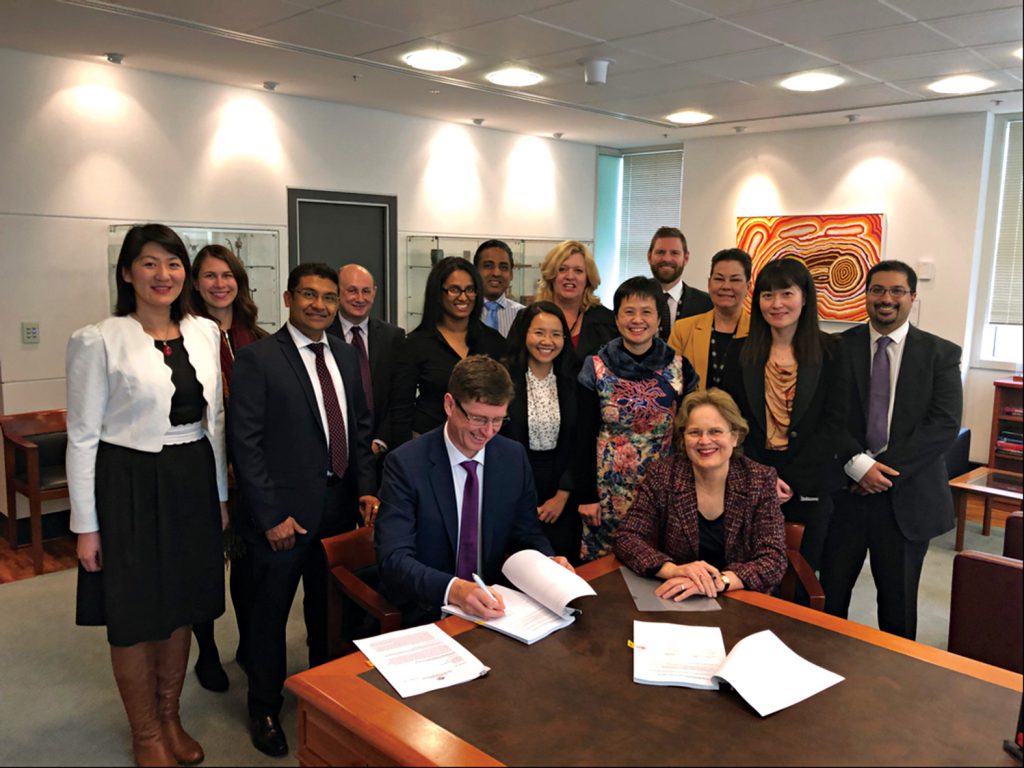
Chief Financial Officer Paul Wood signs the 2017–18 Financial Statements with Secretary Adamson [DFAT/Patrick Lawson]
